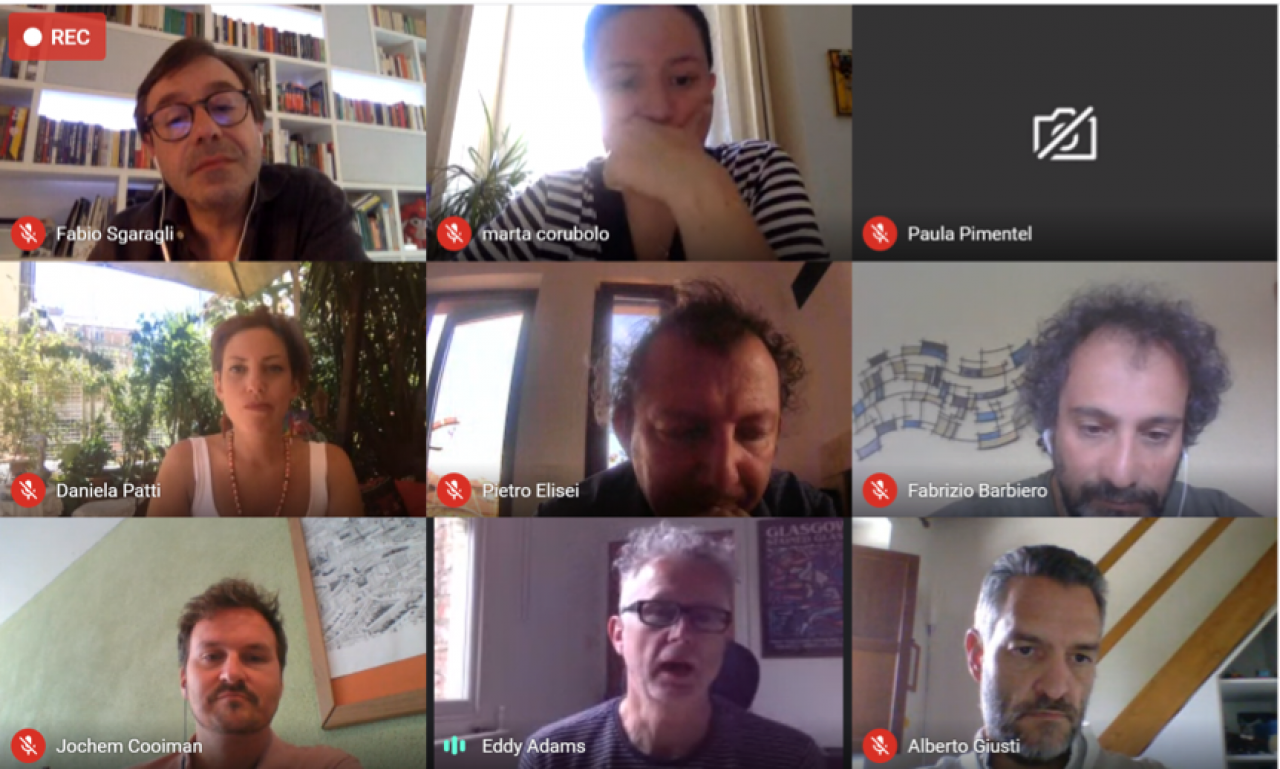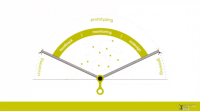
In this difficult period workers need to ask many questions regarding how to manage professional dynamics which so far have been taken for granted. Among these are dynamics ruling sociality: the difficulty and, in many cases, the impossibility to physically meet pushes to find the solution to keep communities active (and maybe to create new ones), especially through digital technologies.
In a delicate moment like the one we are experiencing, the challenge for the partner cities of Innovato-R is to understand how to manage relationships with the people involved in all the phases of each project. With this aim the virtual masterclass titled “Online communities in the time of Covid-19” took place.
The view From URBACT was given by Eddy Adams, URBACT Secretariat, who started his speech with a question to start a reflection: “How will the future be?”.
To give an answer, it is necessary to understand the present. For this reason Eddy Adams involved the participants in a live poll to understand what is the impact of Covid-19 on local transfer activities and how well each city is equipped and skilled to utilise online collaboration tools.
Predicting the future is difficult but Eddy Adams is sure that this is a good period to experiment and try new tools to create new relationships, although it is difficult to build trust in online communities.

Digital tools allow to meet in the same "place" even if we are at a huge distance but they cancel physical closeness and body language.
In conclusion there are two ways to think about online communities. According to the first, in online working we don't have to replicate real life: we have to imagine to start from a blank paper.
According to the second way, it is better to talk about “evolution” rather than “revolution”: we can migrate from online to offline world yet without cancelling what has been done before.
Three experts who every day have to deal with online communities gave three different perspectives about this topic: Alberto Giusti (Guanxi), Daniela Patti (Eutropian) e Marta Corubolo (Community Toolkit).
According to Alberto Giusti, founder of Guanxi, there are three things we have to consider while talking about online communities:
- Community is an asset based on trust. In today’s world having digital interactions is normal, especially for younger people: as it happened with the use of telephone, it is necessary to develop a new culture based on digital technologies. But physical meetings are essential to enhance and deepen relationships;
- Community is the first thing to develop in a new project because everybody can get feedback from participants about the ideas behind the project. Presently it is easier to measure interactions within a community thanks to all the metrics which can be used for this task;
- To distil and to share knowledge within a community is very easy. The power of online tools is to provide communities with a sure asset of knowledge.
Daniela Patti, Founder of Eutropian, an organisation providing support with advocacy, research and policy to support inclusive urban processes, talked about a project that consisted in a series of webinar to comprehend changes related to Covid in the cities. “A discussion on what happened in the cities not only from a geographical point of view – says Daniela Patti – but also from various stakeholders’ perspective on different topics, such as food distribution”.
“This new possibility of communicating online – says Fabio Sgaragli, Lead Expert - can be very helpful in this phase for cities to learn from one another in a cheap and efficient way and to create not just communities within the cities but between the cities”.
According to Fabio Sgaragli “participation and engagement at a local level is possible but it very much depends on digital skills. As known the digital gap is still very much a present challenge. Keeping it simple could be one of the ways in which administrations can reach out local communities yet without losing many of the participants”.
An overview of specific tools for community building was given by Marta Corubolo of Community Toolkit, a project that started from a reflection: today we are all a part of a community, whether big, small, online or offline.
This is the background of Community Toolkit tools:
- They are co-designed tools;
- Communities can create prototypes of news services and organisations;
- The aim in a community is not only to inform participants but also to activate conversations.
Each tool designed to activate, to grow and/or to manage communities (named Openness, Governance Map, The Provocateur, The Monitor, Touchpoint Map, Rewards Maps) is based on prototyping: according to Community Toolkit when we work with a community, we have to spend most of time in this action.

This model confirms the Innovato-R’s approach: prototyping solutions before creating the final project. Another point that can be taken from Community Toolkit as a model for Innovato-R is that community doesn’t come out by chance but requires the use of specific tools and the ability to understand who is part of it. Partner cities which comprehend it can utilise tools from the Community Toolkit to go back, to reflect on the community involved in Innovato-R and even on the wider one related to the city to do experiments with these tools.
The final reflection came from Pietro Elisei, Ad Hoc Expert. In his opinion after this pandemic nothing will be the same: we have entered a new hybrid dimension. “In the new way that we are going to work we really have to think to design a good mix between what we learned in these months and, on the other side, the good things that we have to readapt and to empower with the use of digital tools. “I hope – says Pietro Elisei – that in the future many things will come back because if you want to measure a community you have to be a moderator of it, you have to be physically a part of it”.
